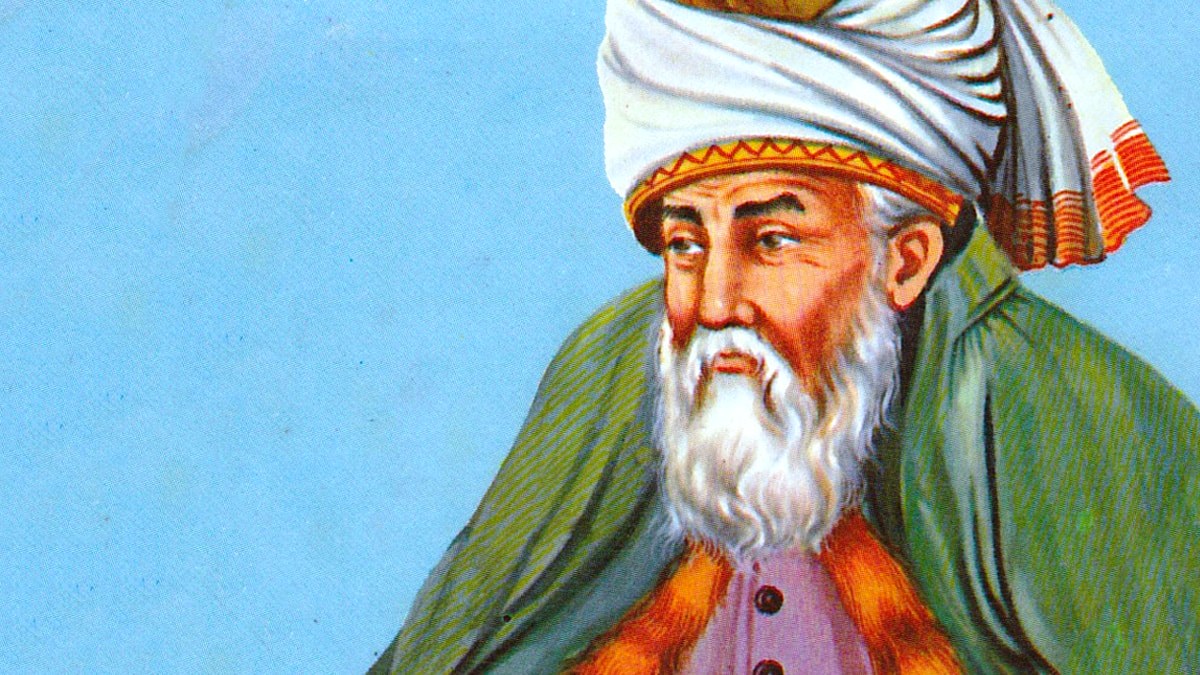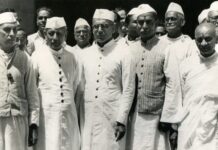As the Persian language vanished from public life in Kashmir a huge amount of literature automatically became unreadable. A century later two scholars took pains to reintroduce Kashmir’s once celebrated Persian poet Ghani Kashmiri by translating his work in English. Irfan Mehraj meets the duo to understand Ghani’s relevance in present-day Kashmir.
 What does it take for a language to revive itself from the neglect and possible extermination it is facing? In simpler words, it requires another language. Translating one language into another is essentially a reintroduction of a language into space from which it is slowly receding. With this idea of reintroduction in mind, Mufti Mudasir Farooqi and Nusrat Bazaz took up translating Mulla Muhammad Tahir Ghani, a revered Persian poet of Kashmir into English. The outcome was a collection of poems of Tahir Ghani titled The Captured Gazelle, published by Penguin.
What does it take for a language to revive itself from the neglect and possible extermination it is facing? In simpler words, it requires another language. Translating one language into another is essentially a reintroduction of a language into space from which it is slowly receding. With this idea of reintroduction in mind, Mufti Mudasir Farooqi and Nusrat Bazaz took up translating Mulla Muhammad Tahir Ghani, a revered Persian poet of Kashmir into English. The outcome was a collection of poems of Tahir Ghani titled The Captured Gazelle, published by Penguin.
“We have such a rich tradition in Persian but it is simply not accessible to people anymore because people don’t read Persian. The barrier of language has debarred people from reading and appreciating a poet like Ghani. So translating Ghani was worthwhile,” says Mufti Mudasir Farooqi, who teaches at Kashmir University’s English department.
Put it upon cultural and political shifts that Kashmir underwent in the last few centuries that Persian lost the vaunted status it once enjoyed. Mufti Mudasir ascribes the cause to historical and political changes, “Upto Afghan rule in Kashmir Persian language was in place. Even during initial Dogra rule, Persian was very much alive. It was during the Dogra period that (because of the influence of Britain, India and rest of world) that Persian was first replaced by Urdu then by English. These were historical changes. We cannot change them. But unfortunately, this disconnect from Persian has debarred us from appreciating our rich tradition,” he adds.
In these times when State appropriation of cultural symbols is a common feature of its political rhetoric, Tahir Ghani, fortunately, is a left out figure. Mufti Mudasir says, “I don’t think Ghani has been appropriated. Rather he has been left un-appropriated by everyone. Had it not been for Iqbal who was Ghani’s great admirer, I think not many people would have known him.”
Tahir Ghani’s fame in Kashmir rests primarily on anecdotes about his personality which are firmly embedded in the popular imagination. One famous anecdote of him declaring himself insane on being approached by Mughal governor is particularly common. The incident places Ghani in a rare position of a spirited poet making his aversion to imperial domination known. The same spirit is invoked by Iqbal in his celebrated work Jawed Nama (1928) in which Ghani register’s his anger and lamentation over treaty of Amritsar in these lines:
O morning breeze, if you
Pass over Geneva,
Carry a word from us,
to the league of nation…
The peasant, the field, the river,
The garden, all have they sold.
They have sold a people and how
Cheaply have they sold…
The lines speak of a poetic spirit rooted to his people and deeply angered with the injustices imposed on them.
The process of choosing the best from Ghani’s corpus was relentless re-reading of his divan. “It was reading his divan again and again and then choosing verses which struck me as the best. Subjectivity comes here, this is my collection of Ghani’s verses – a kind of culling from his entire body of work,” says Mufti Mudasir. The process of selection, however, wasn’t entirely his indiscretion; it was here that Nusrat Bazaz, an associate professor of English in the same department came in. “In order to reassure myself that I am not going wrong I showed it to Nusrat Bazaz. She would either suggest or keep them as they were. She played a positive role,” he adds.
The Captured Gazelle is a recreation of a language from its margins. It’s an effort to relocate Persian literary heritage in the form of Ghani’s poetry; it’s most exquisite practitioner. “Ghani has an intrinsic worth, there is a charm in his poetry and we have tried our best to retain that charm,” says Mufti Mudasir. For Nusrat Bazaz, Ghani Kashmiri strikes her as, “a very imaginative and creative poet who struck me with the way he handled language, his use of metaphor and conceit.” Ghani’s genius at metaphor brought Saib Tabrezi, a famous Iranian poet of the time to Kashmir in search of the meaning of a single word ‘kraal – pan’ which Ghani has used in one of his verses.
It’s a commentary on our times that Kashmir’s greatest Persian poet isn’t accessible to people and is commemorated less through his poetry and more through stories about him which almost always are shaped by triumphalist discourse. “The fact is that people can’t read and appreciate Ghani; so what they know of him is through stories, anecdotes and whatever status the dominant discourse bestows on him. But my whole emphasis was to make Ghani available to people and enable them to judge for themselves what kind of a poet Ghani was,” says Mufti Mudasir.
A good translation is always a recreation in another language wrote Gabriel Garcia Marquez. The Captured Gazelle lives up to this remark suitably well as both the translators have tried to recreate in another language “the image and metaphor of the original” – the essential ingredients of any good poetry. Translating Ghani into English was performing two tasks at the same time. One, to make Ghani available to a wider audience who can read English and second to regain an interest in Persian by way of providing a transliteration of the original. “The fact of the matter is that howsoever good the translation is, it can never match up to the original.

The reason I kept the transliteration alongside the translation was to give readers English rendering of the original Persian and at the same time encourage him to read Persian.
Even if one doesn’t know Persian, reading it in original (transliteration) will make one see and realize that the original has a distinct taste of its own,” states Mufti Mudasir.
Ghani Kashmiri’s poetry stemmed as much as from his own sensitivity as from the actual conditions of his people. “What we can gauge from reading his divan is that Ghani was a very sensitive person. He was sensitive to his own people and to the general misery of people around him. He refers to the famine that had occurred in Kashmir. You won’t find any Ghazal writers writing in these themes but you will find Ghani talking freely about poverty, in fact priding himself on poverty,” contends Mufti Mudasir. Every poet interacts and responds to the realities surrounding him/her in their own peculiar way. “All poets engage with some kind of reality. With Ghani it could be very personal. It could be related to his own personal circumstances of being poor but at the same time could be politically inflected,” says Nusrat Bazaz.
Talking about the dismal response to the book among Kashmiri readership, Mufti Mudasir complains, “I am disappointed that there has been no enthusiasm about the work. Hardly any bookstores have this work, which is very upsetting. We have a very good publisher in Penguin and the work has reached America and England. Outside the response has been good but I don’t find the same kind of enthusiasm in Kashmir.” The comment underscores the deep alienation of masses in valley to our rich heritage. “The younger generation in Kashmir doesn’t know Ghani at all. Our goal was to get people know about our glorious literary heritage. Sadly the response hasn’t been encouraging,” adds Nusrat Bazaz.
Poetry in contemporary times is reduced to a language game where competing voices indulge in aestheticization of language to an extent that newer meanings cease to be created. On the contrary, Ghani Kashmiri was a poet of ‘novel poetic themes and meanings’ who gave the Persian language his own gift of ‘creating metaphors and similes which draw striking comparisons between apparently dissimilar and disparate situations or objects.’ His was a poet of acute imaginative prowess never shy of fresher insights. Speaking proudly on his poetic brilliance Ghani writes:
Meaning cannot refuse,
submission to Ghani’s genius.
Poetic themes were fashioned,
for him at the dawn of creation.
On what could it mean for younger Kashmiris to read Ghani at present Nusrat Bazaz drew from Goethe. “He who cannot draw on three thousand years is living from hand to mouth wrote Goethe. For him anybody who doesn’t know what his heritage is, literary heritage or any kind of heritage – is impoverished.” Ghani Kashmiri is one such figure Kashmiri’s can draw from to cultivate a sense of history and meaning of being a Kashmiri. Ghani Kashmiri’s spirit invoked by Iqbal Zinda Ruh is a befitting example of the great poet’s deep belief in his people’s resilience to come out of subjugation and gain its glory and dignity.
Do you think our soil is bereft of spark?
Look into your heart with a keener eye
Wherefrom has passion and fervour come?
Wherefrom has his breath of the spring’s breeze come?
It has come from the very wind which
Bestows colour and scent on our lofty mountains…















